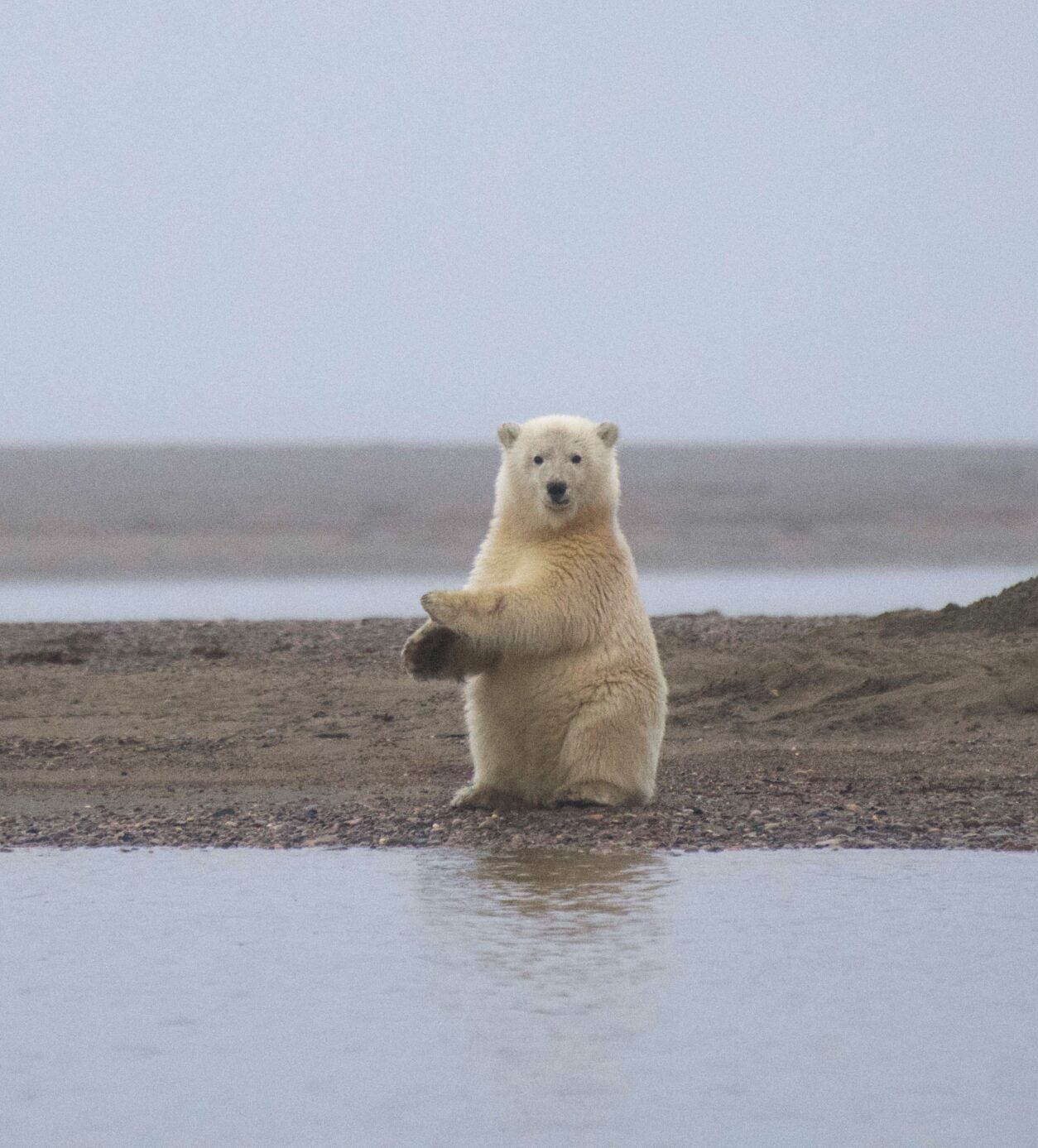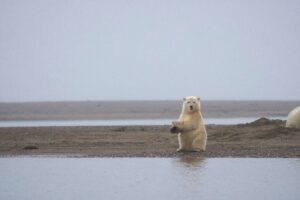
Appeals court ruling is good news for polar bears
By Dawnell Smith
We got good news this month when the 9th U.S. Circuit U.S. Court of Appeals ruled that the U.S. Fish and Wildlife Service must correct legal errors in a rule that lets oil and gas operators harass Southern Beaufort Sea polar bears on the North Slope of Alaska.

Joanna and Bridget at the 9th Circuit Court in Portland, February 2024.
Back in February, we were in a Portland courtroom explaining why Fish and Wildlife Service violated the plain language and intent of the Marine Mammal Protection Act when making its technical findings. The court mostly agreed. Here’s what its ruling says and means for polar bears.
What does MMPA do?
The Marine Mammal Protection Act prohibits unauthorized harassment of marine mammal populations like polar bears. A narrow exception allows Fish and Wildlife Service to authorize an unintentional “take” of small numbers of marine mammals for five years or less if it will have a negligible impact on the population. These authorizations are called “incidental take regulations,” and the term “take” means to harass or injure bears.
In its mid-March ruling, the court determined that the agency can’t invent “less serious” subcategories of polar bear “take” that cause injury without acknowledging that those injuries could occur. It also concluded that the agency failed to evaluate the cumulative impacts of five years of oil and gas activities on polar bears by attempting to look at each year in isolation to say that oil activities would cause a negligible impact.
“The agency’s failure to consider the highly probable death and deadly injury to polar bear cubs is distressing and a violation of the law,” said Bridget Psarianos, senior staff attorney with Trustees. “The entire purpose of the Marine Mammal Protection Act is to protect marine mammals like polar bears from harmful human activities.”
This month’s court decision requires Fish and Wildlife Service to revisit the regulation and correct legal problems—and we hope this means the agency rescinds the current rule. We also hope the agency recognizes that any harm to polar bears from oil and gas activities is not justifiable and that this population needs extensive protection from industrialization.

Polar bear cub on the North Slope in 2019. Photo by Bridget Psarianos.
Polar bear numbers in the hundreds
The Southern Beaufort Sea group of polar bears is already profoundly vulnerable to the impacts of the climate crisis and industrialization, with studies showing the number of these polar bears in the hundreds. The health of cubs is of particular concern, since even one death can have huge consequences. Every sow puts huge resources into birthing and tending a cub, and the health and survival of that cub is essential to sustaining this dwindling population.
Oil industry harassment scares off bears with noise, equipment, and vehicles, and can injure or be fatal to bears, particularly denning cubs, who are weak and need time in their dens with their mothers. Fish and Wildlife Service’s own science show a 95 percent probability that the North Slope’s oil and gas operations will kill polar bears over the regulation’s five-year period.
While Fish and Wildlife Service takes its regulation back to the drawing board, the current rule is still in place, and that keeps us awake at night. We will as always join our clients in protecting these polar bears at every opportunity to ensure that agencies do the same as required by law.


